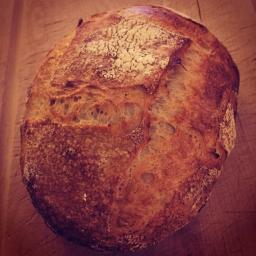I think I'm being ambitious here. Building starters, and started with 3. Actually no, I didn't start with 3. I started with 1 full rye. 50g/50g, following by a 1:1 ratio and then 1:1:1 ratio by the 3rd day. I realised too late that I was going to build a giant and alot of wastage. I decided to split them into 3.
I wonder if they are ready or I should just go on feeding them? Looking for advice.

Rye Starter - Day 5 without refreshment yet.
I took out about 160g from this rye starter and then added 50g/50g. I think I should have thrown out more. It's not as bubbly as the one that I added whole wheat.

Starter 2: Added White flour - Day 5 without refreshment (using Dan Lepard's % of white leaven formula)
80g of initial rye starter/100g white/80g water
It's more bubbly and seems to have tripled. Is this ready?

Mother Starter (Peter Reinhart)
I actually read wrongly and used Reinhart's formula on the 4th day. But it's also very bubbly. Should I continue with this formula to create the mother starter as per Reinhart's formula?
80g rye starter/60g whole wheat/20g water

Looking for suggestions and advices.










